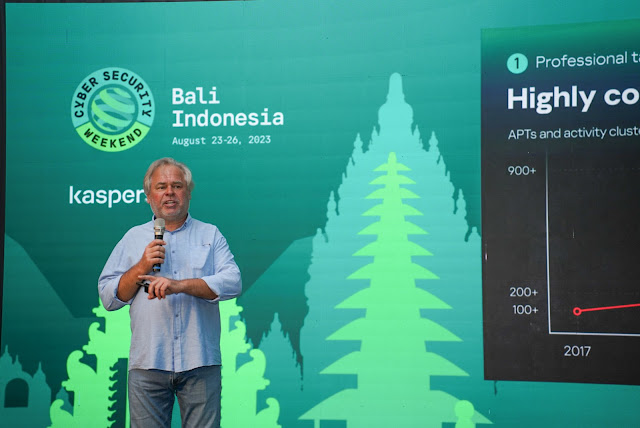Can AI outsmart humans? Is ChatGPT the beginning of our Doomsday?
Artificial Intelligence (AI) has emerged as a powerful tool in the field of cybersecurity and beyond. The arrival of ChatGPT in November 2022 triggered debates and conversations on AI, as it showed the tangible effects of this neural network technology and revealed AI’s potential to disrupt industries globally.
Kaspersky has since revolutionized things by finding a way to develop IT systems with “innate” protection – Cyber Immunity.
Among the conversations surrounding ChatGPT is how cybercriminals can exploit it to increase their phishing and malware attacks. Kaspersky’s Cyber Immunity concept implies that the overwhelming majority of cyberattack types are ineffective and cannot affect a system’s critical functions in the usage scenarios specified at the design stage.
 |
Eugene Kaspersky, CEO of Kaspersky |
“Kaspersky Cyber Immunity is an approach we recently trademarked in both the United States and the European Union. It embodies a secure-by-design system that makes it possible to create solutions that are virtually impossible to compromise and that minimize the number of potential vulnerabilities. In an age where technology can be used by good guys and bad guys alike, traditional cybersecurity is no longer enough. We need to revolutionize our defenses to ensure we create a more secure digital world,” says Eugene Kaspersky, CEO of Kaspersky.
The APAC region is at the forefront of the AI revolution. A fresh study by IDC revealed AI spending here will double in three years - from $9.8 billion in 2023 to $18.6 billion by 2026.
To boost efficiencies and reduce dependency on technical skills, the majority of local enterprises in APAC are also set to embed AI across business technologies categories in three years’ time.
Currently, the APAC AI market size stands at $22.1 billion and is expected to grow almost four-fold by 2028, at $87.6 billion.
 |
Adrian Hia, Managing Director for Asia Pacific at Kaspersky |
“Companies are aware of ways to leverage the power of AI to boost their asset efficiency, improve their product quality, and even to streamline their supply chains for better profits. IDC’s report highlighted that China, Australia, and India are the three major leaders in AI spending across the region and I believe more countries will follow suit. This makes it ripe for us to chart a secure roadmap now when it comes to AI implementation and adoption in APAC to ensure that we harvest its advantages without compromising on cybersecurity,” adds Adrian Hia, Managing Director for Asia Pacific at Kaspersky.
To know more about Kaspersky Cyber Immunity, visit https://os.kaspersky.com/technologies/cyber-immunity/.
Kaspersky will continue the discussion about the future of cybersecurity at the Kaspersky Security Analyst Summit (SAS) 2023 happening in Phuket, Thailand, from 25th to 28th October.
This event welcomes high-caliber anti-malware researchers, global law enforcement agencies, Computer Emergency Response Teams, and senior executives from financial services, technology, healthcare, academia, and government agencies from around the globe.
Interested participants can know more here: https://thesascon.com/#participation-opportunities
[END OF PRESS RELEASE]

No comments:
Post a Comment
Feel free to make a comment as long as it is within the bounds of the issue, and as long as you do it with decency. Thanks!